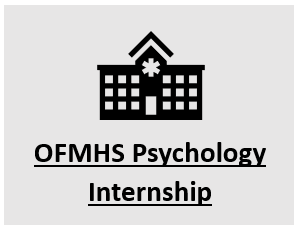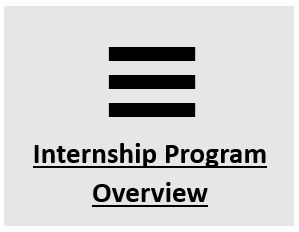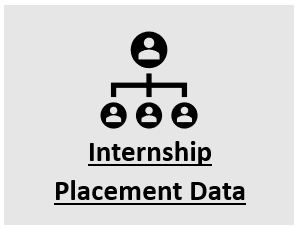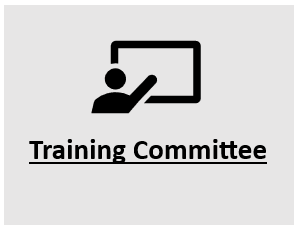Each intern is expected to complete three four-month-long rotations, at least one of which must be a treatment rotation. Rotations are based out of the Centennial Building in Tacoma, Western State Hospital, the Child Study & Treatment Center (located on the Western State Hospital campus), and the Special Commitment Center.
Competency Evaluation Rotation
Interns have the opportunity to work with evaluators conducting competency evaluations with outpatient or inpatient populations. Outpatient forensic evaluators conduct adult pre-trial competency evaluations from Western Washington courts, typically in local correctional facilities. However, these evaluations may also be conducted in hospital settings, attorney offices, or courthouses, depending on specific circumstances. Inpatient-based forensic evaluators primarily conduct pre-trial evaluations of patients who have been ordered to undergo competency restoration services or who require clinical observation in a hospital setting. Evaluations take place primarily at Western State Hospital, which houses approximately 400 competency patients at any given time.
While interns’ primary focus at both the community- and inpatient-based rotations is on competency evaluation, they also have the opportunity to participate in the following:
- Evaluations of mental state at the time of the alleged offense (e.g., sanity, diminished capacity)
- Evaluations of dangerousness (a required component of mental state evaluations and some competency evaluations)
- Administration/interpretation of psychological tests
- Observation of involuntary commitment hearings
- Observation of expert testimony in court trials
Forensic Risk Assessment Rotation
Interns on this rotation work directly with evaluators to conduct forensic risk assessments (FRAs) of patients who have been adjudicated not guilty by reason of insanity (NGRI) and committed to DSHS custody. There are approximately 190 of these patients residing in the state hospitals and the Behavioral Health and Treatment Center at Maple Lane (BHTC-ML; a satellite facility in Centralia, Wash.), and approximately 85 patients residing in the community on court-ordered conditional releases. Evaluations assess for risk of future violence and provide recommendations for treatment and risk management. Interns gain experience with actuarial and structured professional judgment assessments as well as other risk-relevant measures (e.g., VRAG-R, HCR-20v3, PCL-R). They also conduct interviews of patient treatment team members (e.g., therapists, social workers, psychiatrists, physicians). Interns are expected to write a minimum of three to four forensic risk assessments, under supervision.
Other opportunities available in this rotation may include: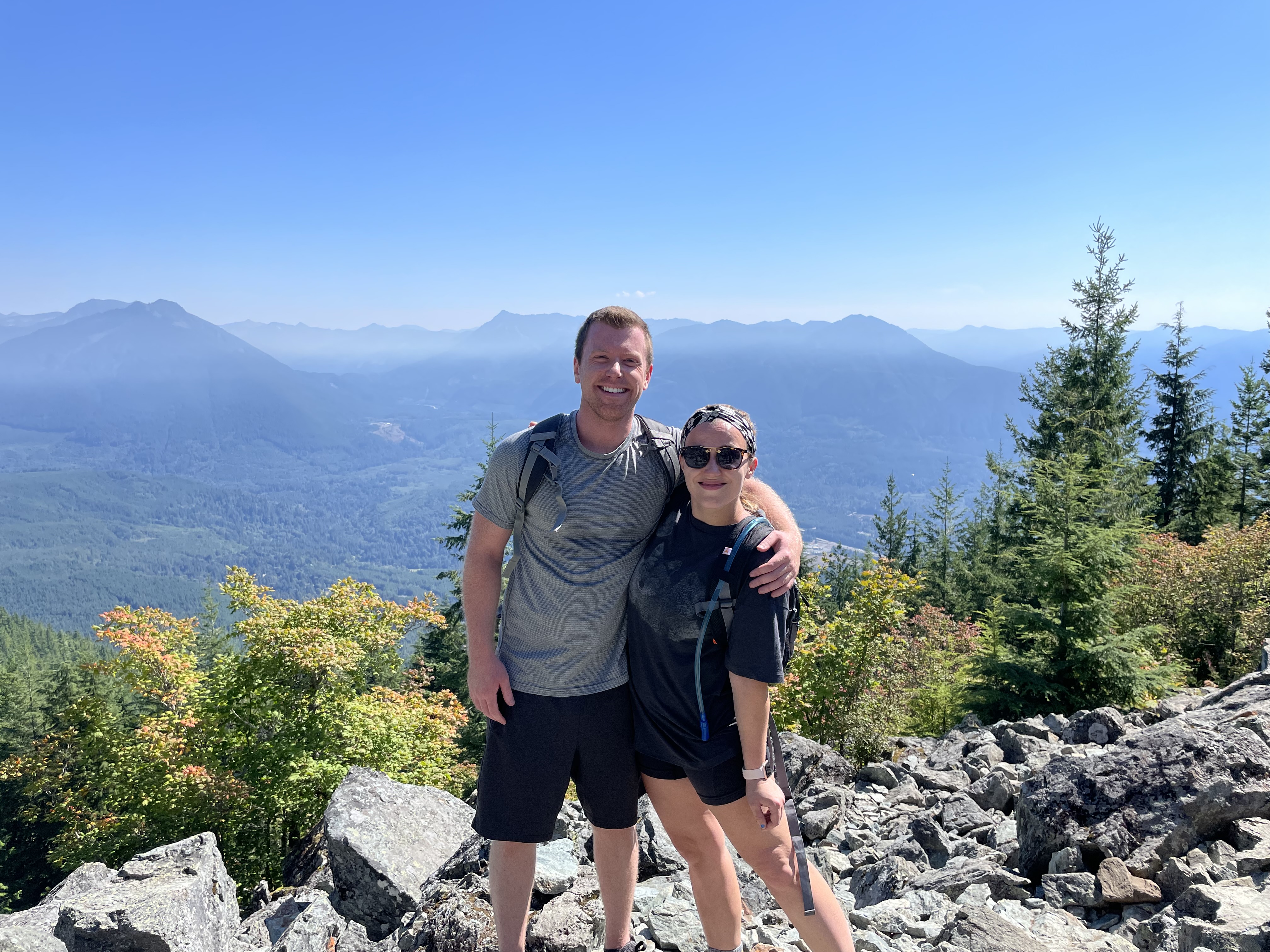
- Attending a meeting of the Risk Review Board, a group of hospital personnel who review patient cases for advancement to higher privileges, conditional release from the hospital, and/or final discharge
- Attending monthly FRA consultation group meetings and presenting one case during the rotation
- Observing expert testimony/depositions
- Conducting additional testing (e.g., diagnostic, personality, etc.)
- Being involved in policy-making processes
- Attending court hearings related to patient petitions for increased privileges and/or discharge
Competency Restoration Rotation
The Behavioral Health and Treatment Center - Steilacoom Unit is a residential treatment facility located on the grounds of WSH and operated by OFMHS. BHTC-SU serves up to 30 male defendants adjudicated not competent to stand trial and ordered to undergo competency restoration treatment. Interns in this setting work directly with psychologists, psychology associates, social workers, recreation and athletic specialists, psychiatric prescribers, and other members of a multidisciplinary team to monitor and treat the barriers to competency identified in patients’ most recent competency evaluations. While the primary focus of the rotation is to learn and facilitate competency restoration treatment groups, other opportunities during the rotation may include:
- Observing outpatient competency restoration treatment services
- Shadowing forensic navigators
- Supervising a practicum or undergraduate student
- Providing competency restoration training to staff
- Providing secondary supervision to master’s level clinicians
- Collaborating with clinical staff and OFMHS Quality Assurance to develop additional competency restoration treatment activities and programming
- Meeting with Trueblood vs. DSHS court monitors (at the monitors’ request)
Not Guilty by Reason of Insanity Treatment Rotation
The Gage Center of Forensic Excellence at Western State Hospital houses primarily NGRI and competency restoration patients. NGRI patients currently reside on three different wards. Under the supervision of a ward psychologist, interns who select this rotation engage in the treatment of NGRI patients, including group and individual therapy, with the primary goal of helping mitigate the patient’s risk of future violent behavior. Interns work within a multidisciplinary team that includes a psychologist, psychiatrist, social worker, physician, RNs, LPNs, pharmacists, recreational and occupational therapists, and other support personnel. They consult with other treatment team members for purposes of identifying treatment needs and placement options, participate in treatment team meetings, and assist in the development of treatment plans. They may also have the opportunity to support patients as they integrate into the community through staff-escorted community outings. Depending on supervisor availability, interns may have the option of combining the NGRI treatment rotation with the forensic risk assessment rotation. (Please note, however, that interns are required to complete at least one rotation that is solely treatment-based.)
Other potential opportunities on this rotation include:
- Conducting psychological testing
- Assessing for suicide risk
- Developing new groups/curricula
- Attending meetings of the hospital’s Risk Review Board
- Attending court hearings related to patient petitions for increased privileges and/or discharge
Civil Center of Excellence Treatment Rotation
The Civil Center of Excellence at Western State Hospital provides inpatient treatment for adults experiencing serious mental illness. It consists of 11 wards, each serving approximately 20-30 patients. Patients on these wards receive treatment under 90- or 180-day civil commitment orders, and most have been transferred from the Gage Center of Forensic Excellence after completing competency restoration/evaluation and being found not competent to stand trial. Some patients residing in CCE were admitted from community hospitals. The Civil Center also encompasses the Habilitative Mental Health unit, which serves people with developmental disabilities who are enrolled in services with Developmental Disabilities Community Services (formerly DDA). At CCE, the goal is to stabilize and assist patients with transitioning to community settings with mental health support in place.
The CCE offers interns a unique opportunity to work with adults diagnosed with a wide variety of behavioral health disorders. Psychologists at CCE offer a range of services, including group and individual psychotherapy, psychological testing, and treatment planning. In addition to working alongside a licensed psychologist, interns work with multidisciplinary treatment teams consisting of a psychiatrist or psychiatric nurse practitioner, social worker, pharmacist, physician, RNs, LPNs, recreational staff, and occupational staff. Specific rotation experiences can usually be tailored to accommodate interns' interests and educational/experiential needs.
Psychology interns participating in a CCE rotation will have opportunities to engage in both diagnostic and psychotherapeutic activities. Interns are expected to:
- Gain exposure to the inpatient treatment milieu
- Conduct group and individual psychotherapy for selected patients
- Participate in interdisciplinary treatment team meetings and consultation
- Conduct or assist in mental status evaluations and individual diagnostic interviews as part of the civil commitment process
- Observe involuntary commitment hearings
- Complete psychological evaluations (contingent on the availability of referrals), including administration, scoring, interpretation, and report-writing
- Develop specific behavioral treatment plans for selected patients, consulting with treatment team members and nursing staff to ensure consistent approaches to patient care
- Complete clinical documentation on a daily or weekly basis, as indicated
Child Study and Treatment Center
The Child Study and Treatment Center is a state and federally-funded, The Joint Commission-accredited, long-term inpatient psychiatric hospital established to treat children and adolescents who cannot be served in less restrictive settings. Located on the grounds of Western State Hospital, CSTC serves children from throughout the state and is the only state-operated children’s psychiatric hospital in Washington. CSTC has a 65-inpatient bed capacity on four cottages (units). On-grounds elementary and secondary schools provided by Clover Park School District are an integral part of the treatment model. Interns are invited to attend monthly seminars and the CSTC Journal Club. Opportunities for individual and group therapy with youth on all cottages are available.
Camano Cottage (ages 5-12): This cottage uses a cognitive behavioral milieu based on a developmental teaching/developmental therapy model. The program emphasizes family involvement (family therapy, multiple family group treatment). Youth are reinforced for demonstrating positive behavior and working towards concrete, measurable goals. All children are assigned an individual therapist and provided with applicable evidence-based therapies. Interns on Camano meet twice weekly with individual clients and co-facilitate treatment groups.
Ketron Cottage (ages 12-14): This cottage uses a cognitive-behavioral model with a focus on a strong community. Ketron youth participate in psychoeducation and recreation therapy groups where they learn and practice skills to be more effective with interpersonal interactions and manage emotions and maintain safe behavior. Much effort is spent helping youth generalize improvement to home environments with home visits and regular passes. Interns on Ketron meet at least once weekly with individual clients and co-facilitate treatment groups.
Orcas Cottage (ages 14-17): This cottage includes two programs. The General Program is for older adolescents who have demonstrated safe behavior and are able to participate in off-cottage programming including school, recreation, and community outings. The Close Attention Program is for older adolescents who, due to their own functioning or legal status, are allowed less access to potentially dangerous items and receive most of their care on-cottage. Dialectical behavior therapy, social skills, and human sexuality groups are examples of the patient education and patient therapy groups offered. Interns on Orcas meet at least once weekly with individual clients and co-facilitate treatment groups.
San Juan Cottage (ages 15-17): This 18-bed facility has 8 beds for forensic evaluation and restoration patients, while the remaining 10 beds are for youth referred through the state’s Children’s Long-term Inpatient Programs (CLIP) system. The milieu program is heavily influenced by dialectical behavior therapy strategies. Interns in San Juan meet at least once per week with individual clients and co-facilitate treatment groups.
Forensic Services (ages 8-17): Evaluators at CSTC conduct pretrial forensic evaluations of minors for juvenile and adult courts across the state. Most evaluations produce opinions regarding clinical diagnosis, competence to stand trial, and likelihood of restoration. Interns participate in interviews, evaluations, report-writing for legal personnel, restoration to competence services for court-referred youths, and individual and group supervision. Less frequent types of evaluations (e.g., capacity to commit a crime, mental state at the time of the offense, suitability for adult criminal court, and long-term risk assessment) may also be available for interns to observe. Interns are invited to observe court testimony and attorney consults as time and interest allow. The extent of involvement in cases depends on the intern’s interests, experience, and availability.
Intern Activities: Interns at CSTC may choose to have a clinically- or forensically- focused rotation. There are also opportunities for cross-cottage experiences and participation.
The minimum expectations for a clinically-focused rotation include:
- Testing and formal write-up of at least one comprehensive cognitive or educational assessment
- A minimum of two individual therapy cases
- Construction and implementation of at least one behavior management program
- Participation as a co-therapist in at least two psychoeducational groups
- Ongoing participation on a multidisciplinary team, including attending treatment plan meetings
- Participating in case reviews, rounds, family staffing, clinical meetings, intake evaluations, etc.
- Participation in a cottage-wide behavioral management program (milieu)
Minimum expectations for a forensically-focused rotation include:
- Weekly participation in forensic group supervision
- Participation in observing or conducting supervised interviews with referred youth and/or their parents
- As appropriate, providing psychological testing with clinical and/or forensic measures
- Independent research of issues as needed for evaluations (e.g., relevant child and adolescent diagnosis, normal child development, best forensic practices in juvenile forensic evaluations, statutes and case law)
- As available and needed, participation in psycho-educational treatment for one juvenile found incompetent to stand trial and hospitalized at CSTC
- As available, observation of a juvenile court hearing addressing a forensic evaluation
Special Commitment Center
The Special Commitment Center provides evaluation and treatment of nearly 200 civilly committed sexually violent predators, all of whom have committed prior acts of sexual violence (e.g., rape, child molestation, incest, indecent liberties by forcible compulsion). Approximately 120 residents currently reside in the total confinement facility on McNeil Island, while approximately 65 live in less restrictive community placements. SCC forensic evaluators conduct legally mandated annual reviews of residents to assess whether they continue to meet statutory criteria as an SVP. SCC psychologists and psychology associates provide treatment services in a secure environment, with close monitoring. The clinical program is housed on McNeil Island in the Puget Sound, while the forensic services unit is housed on the mainland in Steilacoom.
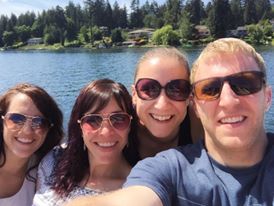
Sexual Offender Treatment Rotation: Interns completing a clinical rotation on the island will co-facilitate sex offender treatment groups and habilitative groups such as dialectical behavior therapy, healthy relationships, social skills, etc. Interns will have the opportunity to perform cognitive, academic achievement, and personality assessments in order to inform treatment. Interns may also have the opportunity to provide brief, solution-focused individual therapy. Interns will be expected to complete all corresponding documentation for their resident interactions and participate in interdisciplinary treatment team meetings to discuss client progress. Interns will also have the opportunity to participate in monthly didactics and case consultations in addition to their individual supervision. Please note that due to recent staffing changes, the availability of the SCC Clinical Rotation during the 2026-2027 training year cannot be guaranteed.
Sexual Offender Evaluation Rotation: Interns participating in the forensic rotation will learn the essential components of assessing sexual offenders, with an emphasis on SVPs. Given the high level of knowledge that is required of individuals working in this specialized area of the field, this rotation will have a strong didactic component, with an emphasis on becoming familiar with the relevant literature. The intern will have the opportunity to practice scoring actuarial risk assessment measures, participate in case conceptualization, and observe interviews of SCC residents. However, the intern will not complete a formal evaluation of a resident, given the possibility of intense legal scrutiny on any such evaluation. Rather, another option will be chosen, with input from the intern, for the written component of this rotation (this frequently takes the form of a “shadow report” written by the intern). Interns will have the opportunity to observe expert testimony and/or depositions. Interns will also prepare a lecture on a related topic of interest for presentation at the Forensic Services staff meeting.
______________________________________________________________________________
SAMPLE PROGRESSIVE LEARNING PLAN: COMPETENCY EVALUATION ROTATION
Objectives
1. Demonstrate minimum proficiency in competence to stand trial (CST) evaluations by:
- completing at least 10 CST evaluations from start to finish (initial or competency restoration treatment evaluations);
- describing the CST evaluation process, including sources of data to be considered;
- verbalizing reasoning of what data is appropriate for inclusion in/exclusion from the report;
- distinguishing between data, inferences, and opinions;
- articulating reasoning for opinions.
2. Involvement in a competency restoration treatment CST evaluation (prefer to complete one)
3. Involvement in mental state at the time of offense evaluation (after proficiency in CST evaluations is met or largely achieved)
4. Observe contested competency hearing and/or civil commitment hearing
CST and MSTO cases may occur through a variety of evaluation locations/situations, including:
- Outpatient jail CST evaluation
- Outpatient personal recognizance CST evaluation
- Inpatient initial CST evaluation
- Inpatient competency restoration treatment evaluation
- MTSO (sanity and/or mental state – prefer exposure to both, may be two different cases evaluation), may be inpatient, outpatient-jail, outpatient-PR
- Outpatient or inpatient developmental disability CST evaluation
Notes:
- “Involvement” means anything from observation, contact of collaterals, partial writing of the report, first author of the report
- The rotation supervisor for any case is responsible for case selection, to assure the intern is not the first author on any case that is likely to require testimony (e.g., felony assault 3)
- Proficiency is more important than the location of the evaluation
- Once proficiency is established, have intern go with other examiners for breadth of experiences with other psychologists
- Internship supervisors of IFES and CFES coordinate with each other to assure a variety of objectives-experiences are included for each intern
Weeks 1 and 2
Activities/Experiences
- Observe primary supervisor conduct a competence to stand trial evaluation
- Observe secondary supervisor (or other examiners) conduct competence to stand trial evaluation
- Review and discuss CST reports for the cases observed
- Tour and observe mental health courts
- Attend jail orientations if necessary
- Review readings with supervisor(s)
Suggested Readings
A. RCW 71.05 – Civil Commitment
B. LaBelle and Beyond: Defining Grave Disability (PowerPoint presentation, Dr. Richard Yocum)
Case: In re LaBelle (1985)
C. RCW 10.77 - Criminal Evaluations
D. Melton et al. (2007): Chapter 1 - Law and the Mental Health Professions: An Uneasy Alliance
E. Therapeutic and Forensic Roles (tables)
Articles available:
- Greenberg, S.A., & Shulman, D.W. (1997). Irreconcilable conflict between therapeutic and forensic roles. Professional Psychology: Research and Practice, 28, 50-57.
- Greenberg, S.A., & Shulman, D.W. (2007). When worlds collide: Therapeutic and forensic roles. Professional Psychology: Research and Practice, 39, 129-132.
- Heltzel, T. (2007). Compatibility of therapeutic and forensic roles. Professional Psychology: Research and Practice, 38, 122-128.
- Morse, J.F. (2008). The ethics of forensic practice: Reclaiming the wasteland.
F. Melton et al. (2007): Chapter 3 - The Nature and Method of Forensic Assessment
G. DeMier, R. (2013). Forensic report writing. In R. K. Otto (Ed.), Forensic psychology (2nd ed.)
Weeks 3 and 4
Activities/Experiences
- Conduct CST evaluation with primary supervisor
- Supervision of evaluations conducted, review of forensic psychology perspective on evaluations
- Review readings with supervisor(s)
Suggested Readings
A. Melton et al. (2007): Chapter 6 – Competency to Stand Trial
B. Frederick et al. (2014)
- Table of Contents
- Introduction to Volume
- Section 1: Standards of Competency
- Youtsey v. U.S.
- Dusky v. U.S.
- Wieter v. Settle
- Appendix A – Legal Citation
- Appendix B – Relevant Clauses and Amendments of the U.S. Constitution
C. Case: Dusky v. U.S., 362 US 402 (1960)
D. Frederick et al. (2014): Section 2 – Thresholds for Competency Examinations
- Kenner v. U.S.
- Pate v. Robinson
- Drope v. Missouri
- Seidner v. U.S.
Weeks 5 and 6
Activities/Experiences
- Conduct CST evaluation with primary supervisor and other examiners, as appropriate
- Supervision of evaluations conducted, review of forensic psychology perspective on evaluations
- Observe mental state at the time of offense evaluation conducted by primary or secondary supervisor
- Review/discuss mental state at the time of offense evaluation completed by supervisor(s)
- Review readings with supervisor(s)
Suggested Readings
A. Frederick et al. (2014): Section 3 – Constitutional & Judicial Considerations
- McDonald v. U.S.
- Medina v. California
- Cooper v. Oklahoma
- Godinez v. Moran
- Indiana v. Edwards
- North Carolina v. Alford
- U.S. v. Greer
B. Case: Estelle v. Smith, 451 U.S. 454 (1981)
Weeks 7 and 8
Activities/Experiences
- Conduct CST evaluation with primary supervisor and other examiners, as appropriate
- Supervision of evaluations conducted, review of forensic psychology perspective on evaluations
- Observe and/or conduct mental state at the time of offense evaluation with primary or secondary supervisor
- Review/discuss mental state at the time of offense evaluation completed by supervisor(s)
- Review readings with supervisor(s)
Suggested Readings
A. Frederick et al. (2014): Section 4 – Incompetent Defendants
- Riggins v. Nevada
- U.S. v. Brandon
- Sell v. U.S.
- U.S. v. White
- U.S. v. Valenzuela-Puentes
- U.S. v. Evans
- Jackson v. Indiana
- U.S. v. Duhon
Weeks 9 and 10
Activities/Experiences
- Conduct CST evaluation with primary supervisor and other examiners, as appropriate
- Supervision of evaluations conducted, review of forensic psychology perspective on evaluations
- Observe and/or conduct mental state at the time of offense evaluation with primary or secondary supervisor
- Review/discuss mental state at the time of offense evaluation completed by supervisor(s)
- Review readings with supervisor(s)
Suggested Readings
A. Frederick et al. (2014): Section 5 – Amnesia & Competency
- Wilson v. U.S.
- U.S. v. Swanson
- U.S. v. Borum
- U.S. v. Stevens
B. Frederick et al. (2014): Section 6 – Adjudicative Competency in Juveniles
- In re Causey
- G.J.I. v. State of Oklahoma
- In the Interest of S.H.
Weeks 11 and 12
Activities/Experiences
- Conduct CST evaluation with primary supervisor and other examiners, as appropriate
- Supervision of evaluations conducted, review of forensic psychology perspective on evaluations
- Observe and/or conduct mental state at the time of offense evaluation with primary or secondary supervisor
- Review/discuss mental state at the time of offense evaluation completed by supervisor(s)
- Review readings with supervisor(s)
Suggested Readings
A. Mental State at the Time of the Offense: Sanity and Mens Rea
- Melton et al. (2007): Chapter 8 – Mental State at the Time of the Offense
- Daniel M’Naghten’s Case (1843)
- State v. Atsbeha, 142 Wn.2d 904 (2001)
Weeks 13 and 14
Activities/Experiences
- Conduct CST evaluation with primary supervisor and other examiners, as appropriate
- Supervision of evaluations conducted, review of forensic psychology perspective on evaluations
- Observe and/or conduct mental state at the time of offense evaluation with primary or secondary supervisor
- Review/discuss mental state at the time of offense evaluation completed by supervisor(s)
- Review readings with supervisor(s)
Suggested Readings
A. Frederick et al. (2007)
- Table of Contents
- Introduction to Volume
- Introductions and Summaries from Sections:
- State and Federal Statutes in the U.S. Pertaining to Insanity
- Roots of the Insanity Defense
- Insanity and the U.S. Constitution
- The D.C. Experiment
- What is “Wrongfulness”?
- What to Do With Insanity Acquittees
- Prosecuting the Mentally Ill
- Appendix A – Legal Citation
- Appendix B – Relevant Clauses and Amendments of the U.S. Constitution
Weeks 15 and 16
Activities/Experiences
- Conduct CST evaluation with primary supervisor and other examiners, as appropriate
- Supervision of evaluations conducted, review of forensic psychology perspective on evaluations
- Observe and/or conduct mental state at the time of offense evaluation with primary or secondary supervisor
- Review/discuss mental state at the time of offense evaluation completed by supervisor(s)
- Review readings with supervisor(s)
- Completion of final intern evaluation.
- Discuss intern recommendations for Forensic Assessment Rotation

